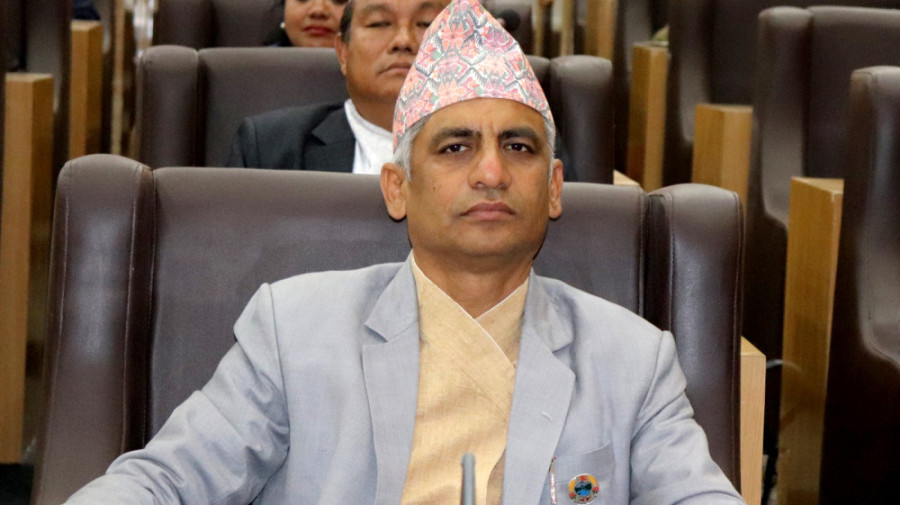Editorial
Karki’s excesses in Koshi
The Koshi chief minister’s fall from power is sadly accompanied by a fall from grace.
A month after his coalition partners withdrew support, Kedar Karki is finally on the edge. On Wednesday, Koshi Province Head Parshuram Khapung called for the formation of a new government, relegating Karki to the post of caretaker chief minister. This will hopefully clear the stalemate in the province, where Karki had held on to the post steadfastly since April 8 despite being in the minority. He neither resigned nor called for a floor test, all too aware that he had reached an impasse. He acted like a shipwrecked captain holding onto a plank, hoping to survive or be rescued. But, all along he was just swimming in the shallow waters he and his ilk had muddied just to catch a few disoriented fish. Having tasted power for a few months, Karki, too, looked disoriented, for he could not find the direction of morality in contemporary Nepali politics.
What is uniquely disappointing about Karki is that he transgressed the fundamental norms of democratic politics in his entry and an impending exit. He, a Nepali Congress provincial lawmaker, offered his ethical politics at the altar of the CPN-UML when he took the rival party’s support to become the chief minister. Karki’s rise to the top in Koshi was the handiwork of UML chair KP Sharma Oli, the suave political disruptor who landed a surprise attack on the Congress with its own weapon by taking the grand old party’s anti-establishment faction led by Shekhar Koirala into confidence. So disoriented was Karki that he saw no contradiction in enjoying the support of a rival party while also garnering the support of his own party and its coalition partners, the Maoist Centre and the CPN (Unified Socialist).
Karki’s transgression at the behest of Oli was so great that it became one of the most contested topics in the Congress’s Mahasamiti meeting in February. If that was not enough, it played a vital role in the downfall of the Congress-Maoist coalition government—at least that’s one of the main reasons Maoist chair and Prime Minister Pushpa Kamal Dahal cited when switching partners in March. One may even say Oli got a taste of his own medicine, with Karki holding onto the chair after the UML withdrew support. But Oli continued to wear a smirk on his face, knowing all too well that Karki was just a novice political player whose days as the CM were numbered. What Karki did not know was that his fall from power would be accompanied by a fall from grace, too—if he hadn’t already.
As he limps to the exit door, Karki resembles yet another faulty cog in the wheel of greed that keeps our parliamentary politics running. If anything, he signifies the devolution of that greed to middle-order politicians and the provinces.
The recent upheavals in the provinces, starkly so in Gandaki, Sudurpaschim and Koshi, after Dahal’s swapping of his political bedfellows at the centre, have signalled the provincialisation of a morally reprehensible political practice whose only goal is to grab power by any means. As Nepal adopted federalism through the 2015 constitution, what the people had expected was a transition to a more democratic society through a devolution of power. But what they got is a transmission of the same old immoral politics to the provinces. Such trivialisation of democratic politics is uncalled for.




 13.12°C Kathmandu
13.12°C Kathmandu














